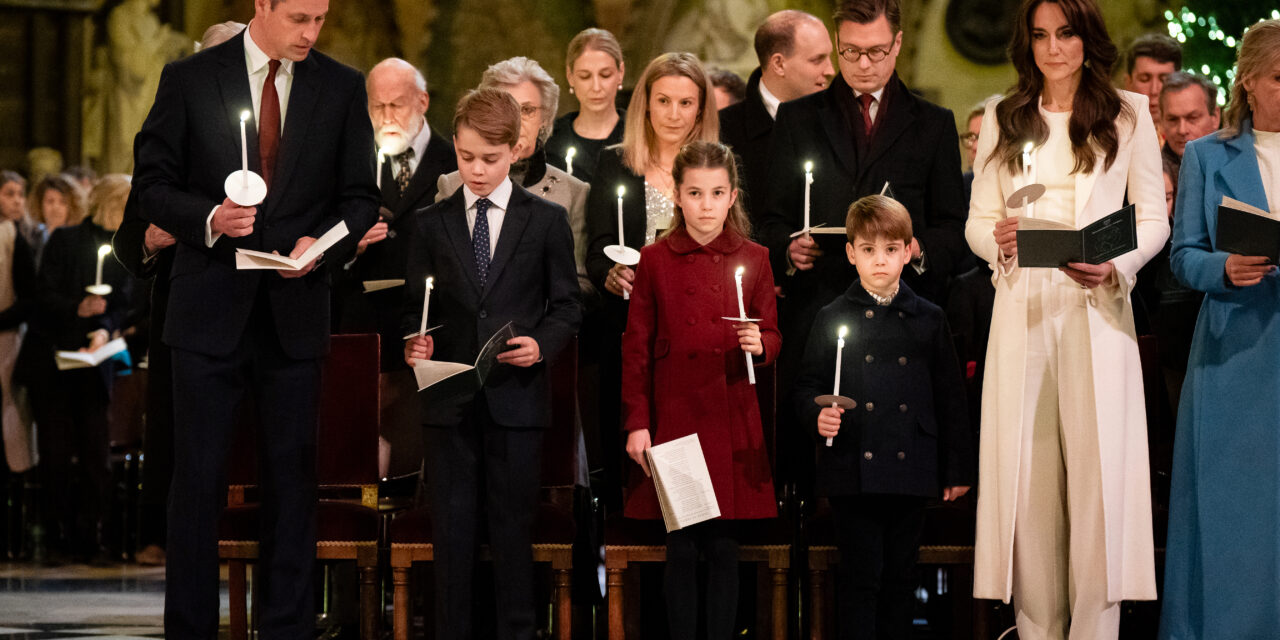Royal watchers took note of the early release this past weekend of an excerpt from Princess of Wales Kate Middleton’s Christmas address, which will be broadcasted on Christmas Eve as part of an annual carol service held at Westminster Abbey in London.
The Princess, 41, will be hosting her third service. Married since 2011 to William, Prince of Wales, and heir apparent to the British throne, the couple have three children – princes George and Louis, and Princess Charlotte.
“Christmas is a time when we come together and celebrate the birth of a newborn baby,” she said. “The arrival of every baby is a precious and momentous time. It brings us together to reflect on new beginnings and brings hope for the future.”
News outlets widely reported her words, delivered before a festively decorated and glimmering tree.
“Throughout our earliest interactions, relationships and experiences, with those who love us, even before we are born, we lay the foundations to so much of what that future will depend on, but only by valuing and supporting the vital role of the adults in a child’s world can we hope to make a difference,” she added.
The Princess of Wales went on to discuss just how foundational a safe, healthy and loving upbringing is for a child – and the broader society.
“This is not just making a difference to children today, it will go on to shape a happier, healthier, fairer world in the future,” she suggested.
Kate Middleton is correct, of course, and perhaps even understating just how critical the early years of life can be in the development of a child.
Studies show that exposure to negative and unhealthy factors lead to literal brain damage that can follow someone around the rest of their life. Children exposed to trauma are more likely to grow up insecure. Healthy social and intellectual development is more likely to happen when a boy or girl is raised in a home with a married mother and father.
This coming January is “Sanctity of Life Month,” a tradition started in response to the Supreme Court’s baseless and tragic decision on January 22, 1973, that legalized abortion in all fifty states. The month of December should be in the running as a time set aside to celebrate the beauty of life, beginning with God sending His son to earth in the form a helpless baby.
Perhaps it’s unlikely the Princess of Wales intended to make an overt pro-life statement at the carol service, but she just as well may have done so.
That’s because Kate acknowledged that preborn life is a legitimate classification:
“Throughout our earliest interactions, relationships and experiences, with those who love us, even before we are born …”
How else can you love someone who doesn’t first exist?
“The arrival of every baby is a precious and momentous time. It brings us together to reflect on new beginnings and brings hope for the future.”
It’s a perplexing thing that even the hard hearted would have a difficult time disagreeing with the preciousness of an infant’s life. New babies brighten up a room and can put broad smiles on even the most lowly among us.
Yet, just outside the massive doors of Westminster Abbey where the princess was delivering her remarks, the birth rate in the United Kingdom continues to plummet to new lows not seen in more than two decades. America is no better.
This startling contradiction – a widespread acknowledgement of the charm and love a child brings into the world contrasted with an increasing reluctance to marry and form families with lots of children – is one of the great tragedies of our time.
Christmas endures for a lot of reasons, many of them completely detached from the spiritual. But perhaps the Lord continues to prick the consciences of the world each December as we pause to celebrate the birth of a beautiful baby boy born two-thousand years ago.
The pro-life cause enjoys many voices, including the Princess of Wales.
Image from Getty.






